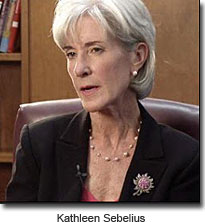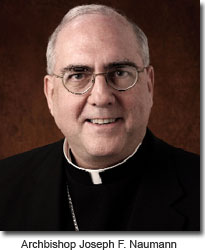Philosophy, the love of wisdom, is a general title covering many particular disciplines which should lead its practitioners to the knowledge of the highest things from a human perspective. From the proper Christian perspective, it should culminate in and serve as a handmaid to theology for true knowledge and wisdom culminates in its highest, first, and final cause which is God. One difficulty man encounters is that he cannot know God as He knows Himself. Man must proceed from God’s effects, viz. the created material order. Even with divine revelation, that same revelation is put in the words of human language, the tongues of men. Thus it was also for the Incarnation of the Word and His redemption of mankind. Christ spoke by similitude, using analogy and parables to instruct man about God. But the infinite God is beyond the powers of the finite intellects of men. Therefore we can only get to God by a likening of Him to His effects. As all men are meant to know God in some way, to philosophize in a meaningful manner requires man to use analogy, likening the highest object of our inquiries, God, to His effects, the sensible order. Thus it was for the Common Doctor, St. Thomas Aquinas. Thomas rooted his philosophy in the common, sensible, and named experiences of men rendering it accessible to everyone, and by use of analogy, unified his philosophy into an integrated whole which brought man from the his common, sensible experiences to the highest considerations of things divine.
Aristotle distinguishes between things named equivocally and univocally.1 Equivocal terms are terms which have more than one meaning, these meanings themselves having no apparent relation to each other. Univocal terms carry its meaning throughout its various uses. St. Thomas, in view of the end for which he wrote, refined Aristotle’s distinctions by employing analogous terms, terms which have more than one meaning, those meanings having some sort of relation to each other by way of comparison. D.Q. McInerny sums it up well when he says:
An analogous term might be described as a hybrid between a univocal term and an equivocal term. Analogous terminology, and behind that analogous thinking, is based upon the act of comparison, which is one of the most elemental movements in human reasoning.2
So it was that the Common Doctor, in seeking to keep an accessible consistency in his philosophy, employed analogous terms drawing comparisons between the sensible order, that order which is first known to man, and its cause – God. In order to illustrate this claim more clearly, let us look at St. Thomas’ considerations of “act” and “potency”.
In the De Potentia of the Disputed Questions, St. Thomas first asserts that one cannot consider act apart from potency for the terms are correlated. By way of a similitude, it would be difficult to consider “up” apart from “down”. Then, Thomas considers act as twofold: 1) as form, and 2) as operation. The first is first absolutely, but the second is first by our sensible experience:
I answer that to make the point at issue clear we must observe that we speak of power in relation to act. Now act is twofold; the first act which is a form, and the second act which is operation. Seemingly the word ‘act’ was first universally employed in the sense of operation, and then, secondly, transferred to indicate the form, inasmuch as the form is the principle and end of operation.3
So he begins with the sense experience wherein man sees ‘act’ as an operation – something doing something. The formal aspect of ‘act’ received its nomenclature from the operation even though the form as the principle of the operation is the cause of that operation. St. Thomas asserts that the term was literally “carried over” or “transferred” (translatum). Thus the first meaning or understanding of the term ‘act’, viz. its operation, was stretched, as it were, to encompass the cause of the operation, viz. the form, for the cause is related to the effect, the form is related to the operation. Now we have a term that has multiple but related meanings as we proceed “up”.
But before Thomas proceeds up, he proceeds “across”, for his next consideration is potency or power. He draw a similitude (similiter) with act and asserts that potentia is twofold as well drawing a direct relation with the respective twofold consideration of actus. Immediately following upon the above quotation, St. Thomas goes on to say:
Wherefore in like manner power is twofold: active power corresponding to that act which is operation—and seemingly it was in this sense that the word ‘power’ was first employed:— and passive power, corresponding to the first act or the form,—to which seemingly the name of power was subsequently given.4
Thus what was first attributed to actus by experience was similarly first attributed to potentia. If a thing acts, it follows that it has the power to act. This potency, to distinguish it, was give the appellation, “active potency” (potentia activa). Likewise, as the term, actus, was ‘transfered’ to encompass the cause which is the form, so the term, potentia, was transferred to encompass that sufferable or perfectible aspect of the form and was entitled, “passive potency” (potentia passiva). Whence it is that, by way of example, Orville the pianist can become the better pianist.5 Therefore, that which is prior absolutely received its name from its effect or operation.
This series of ‘stretching’ or ‘transferring’ from the action to the principle of action by way of analogy must find a termination; and so it does in the first act. However, as St. Thomas ascends he must begin a series of negations by which those things which cannot be attributed to God’s nature must be sloughed. As we see in Thomas’ arguments for the existence of God, that which is “able to be” must be brought into being by that which is (in act) already.6 And as God cannot suffer change and as He must be perfect, He cannot admit of a passive potency. We see how he argues this in the second part of his corpus of the same question we have been treating thus far:
Now, just as nothing suffers save by reason of a passive power, so nothing acts except by reason of the first act, namely the form. For it has been stated that this first act is so called from action. Now God is act both pure and primary, wherefore it is most befitting to him to act and communicate his likeness to other things: and consequently active power is most becoming to him: since power is called active forasmuch as it is a principle of action.7
An operation can only occur because of the form, i.e. an act can only be performed by something in act. But as we ascend up the material order to God, we must negate that passive power, for God cannot suffer or be perfected because He is perfect in Himself. Therefore, God has not passive potency but active potency, for though He cannot suffer, He is able to perform or not perform operations as He is the first principle of action.
Thomas explores this consideration of negation further to solidify and unify his argument, and he also takes the time to note the human need for analogous terminology:
We must also observe that our mind strives to describe God as a most perfect being. And seeing that it is unable to get at him save by likening him to his effects, while it fails to find any creature so supremely perfect as to be wholly devoid of imperfection, consequently it endeavours to describe him as possessing the various perfections it discovers in creatures, although each of those perfections is in some way at fault, yet so as to remove, from God whatever imperfection is connected with them.8
In short, we can only know God through his effects and name him analogously. As we believe and endeavor to describe Him as perfect, our attributions are imperfect, for no human term can adequately describe God; even our positive assertions ultimately fail. To illustrate this, the Common Doctor goes on the give the example of “being”, “substance”, and “subsistence”. “Being” describes something as complete but without the notion of “subsistence”. The term, “substance”, denotes subsistence but as also the subject of something else. Yet we still ascribe “being” and “substance” to God. We do this because our first experience with beings and substance are in the sensible order of creation. As we proceed up and as we carry over or transfer terms, we negate aspects that would be erroneous to attribute to God. Thus, though we see being as simple but inhering in something, when we speak of God, we keep the notion of simplicity as we slough the notion of inherence. Likewise, when we speak of substance as attributed to God, we keep the notion of that continuing or persisting existence while sloughing the notion of “standing under” as individual of a species or as species of a genus.9 With this illustration, St. Thomas goes on to conclude his arguments regarding act and potency in respects to God thusly:
In like manner we ascribe to God operation by reason of its being the ultimate perfection, not by reason of that into which operation passes. And we attribute power to God by reason of that which is permanent and is the principle of power, and not by reason of that which is made complete by operation.
To restate, after we have seen His effects in the created order, we ascribe operation and power, act and (active) potency, to God but not as they are exhibited in His effects, but by abstracting from the material order and negating any imperfections associated with the terms. Thus, by way of analogous naming, St. Thomas has taken us from our sensible experiences and our common usage of terms and, while preserving and expanding those terms, brought us to a better understanding of God, however indirect.
This is just one illustration of many of how the Common Doctor proceeds from effect to cause using fundamental knowledge of the material order to considerations of divine things. St. Thomas uses analogy throughout his whole philosophical system, and in so doing, unites it together into an integrated whole that proceeds from common experience and nomenclature. Truly, he could not do otherwise. Equivocal terminology would not advance knowledge as various definitions of one term are unrelated. Univocal terminology would be just as unsuccessful, for the one-to-one relation of definition to term could not apply in every circumstance, especially when treating of God. God and nature are not a computer programs which can be discerned by way of language bricks, those univocal terms which seem only to work as technical terminology in the mechanical arts. The relation cannot be one-to-one, lest we say that God is being without subsistence, or that He is a substance that is the subject of something else. Nonetheless, if philosophy is properly undertaken, it should lead us to God as from effect to cause. St. Thomas’ use of analogous terminology in his philosophy allows us to do this. The Common Doctor gives an example of the veracity of St. Paul’s declaration:
For what can be known about God is plain to them, because God has shown it to them. Ever since the creation of the world his invisible nature, namely, his eternal power and deity, has been clearly perceived in the things that have been made.10
ADDENDUM
The text in Latin of the De Potentia used for this essay.
From Question 1, article 1, corpus.
Respondeo. Ad huius quaestionis evidentiam sciendum, quod potentia dicitur ab actu: actus autem est duplex: scilicet primus, qui est forma; et secundus, qui est operatio: et sicut videtur ex communi hominum intellectu, nomen actus primo fuit attributum operationi: sic enim quasi omnes intelligunt actum; secundo autem exinde fuit translatum ad formam, in quantum forma est principium operationis et finis. Unde et similiter duplex est potentia: una activa cui respondet actus, qui est operatio; et huic primo nomen potentiae videtur fuisse attributum: alia est potentia passiva, cui respondet actus primus, qui est forma, ad quam similiter videtur secundario nomen potentiae devolutum. Sicut autem nihil patitur nisi ratione potentiae passivae, ita nihil agit nisi ratione actus primi, qui est forma. Dictum est enim, quod ad ipsum primo nomen actus ex actione devenit. Deo autem convenit esse actum purum et primum; unde ipsi convenit maxime agere, et suam similitudinem in alias diffundere, et ideo ei maxime convenit potentia activa; nam potentia activa dicitur secundum quod est principium actionis. Sed et sciendum, quod intellectus noster Deum exprimere nititur sicut aliquid perfectissimum. Et quia in ipsum devenire non potest nisi ex effectuum similitudine; neque in creaturis invenit aliquid summe perfectum quod omnino imperfectione careat: ideo ex diversis perfectionibus in creaturis repertis, ipsum nititur designare, quamvis cuilibet illarum perfectionum aliquid desit; ita tamen quod quidquid alicui istarum perfectionum imperfectionis adiungitur, totum a Deo amoveatur. Verbi gratia esse significat aliquid completum et simplex sed non subsistens; substantia autem aliquid subsistens significat sed alii subiectum. Ponimus ergo in Deo substantiam et esse, sed substantiam ratione subsistentiae non ratione substandi; esse vero ratione simplicitatis et complementi, non ratione inhaerentiae, qua alteri inhaeret. Et similiter attribuimus Deo operationem ratione ultimi complementi, non ratione eius in quod operatio transit. Potentiam vero attribuimus ratione eius quod permanet et quod est principium eius, non ratione eius quod per operationem completur.
BIBLIOGRAPHY
Aquinas, St. Thomas. Quaestiones disputatae de potentia dei. Corpus Thomisticum, Universidad de Navarra, Fundación Tomás de Aquino. 2006
http://www.corpusthomisticum.org/qdp1.html
_______. Quaestiones disputatae de potentia dei. translated by the English Dominican Fathers, Westminster, Maryland: The Newman Press, 1952, reprint of 1932, Html edition by Joseph Kenny, O.P.
http://www.op-stjoseph.org/Students/study/thomas/QDdePotentia.htm#1:1
Aristotle. Categories. H.P. Cooke (translator), Loeb Classical Library, Campbridge, Massachusetts; London, England: Harvard University Press, 1949 & 1996.
McInerny, D.Q. The Philosophy of Nature. Lincoln, Nebraska: Alquin Press, 2001.
McInerny, Ralph. “Analogy”. The third lecture for the course, “Introduction to Thomas Aquinas”, given by Dr. McInerny for the International Catholic University (Notre Dame, Indiana) working in conjunction with Holy Apostles College & Seminary (Cromwell, Connecticut), 2002.
1Aristotle. Categories, 1a, 1-10
2D.Q. McInerny. The Philosophy of Nature, chapter 3, p. 80.
3St. Thomas Aquinas. De Potentia, q.1, a.1, co.
4ibid.
5Dr. Ralph McInerny. “Analogy”. The third lecture for the course, “Introduction to Thomas Aquinas”, given by Dr. McInerny for the International Catholic University working in conjunction with Holy Apostles College & Seminary (2002).
6St. Thomas Aquinas. Summa Theologiae, I, q.2, a.3, co.
7St. Thomas Aquinas. De Potentia, q.1, a.1, co.
8ibid.
9ibid.
10Romans. 1:19-20





